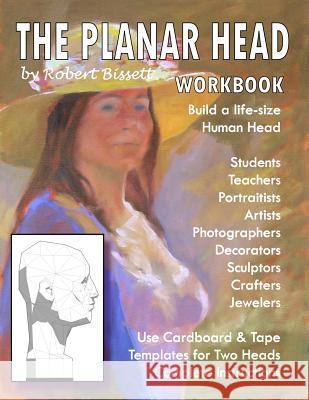The Planar Head Workbook: Build A Life-size Human Head » książka
The Planar Head Workbook: Build A Life-size Human Head
ISBN-13: 9781475050639 / Angielski / Miękka / 2012 / 74 str.
Have you ever wanted to draw or paint the human head? If you have tried it you probably have already discovered that faces are just about the most difficult thing there is to do. Proportions and perspective have to be right. You want to get a likeness with the right expression. The slightest pencil mark or brush stroke can make an amazing difference. How do you reach this high level of skill ? Working from life is the best way. Photos are fine for reference, but you need to develop a feel for the three dimensional form. So, find a friend or family member who is willing and able to sit perfectly still for hours at a time and get started practicing Can't think of anyone? Ok, hire a professional model. You'd soon go broke unless you are part of the 1%. The traditional path to portrait success starts with working from plaster casts for obvious reasons. Even better is to begin with a planar head...the human head broken up into planes which simplifies the task of converting a 3D object to a 2D surface. Planar heads are available commercially and can be ordered online. However, you would be well advised to make your own for two reasons: 1) cost and 2) feel. Of the two 'feel' is the most important. The experience of forming and building a three dimensional human head with your own hands is invaluable. By making your own model, shaping it with your own fingers, you will internalize the forms. They will become fixed in your mind never to be forgotten. The purpose of this book is to provide you with an easy and inexpensive way to make your own model of a life-sized human head. Useful for teachers, students, artists, photographers, sculptors, crafters, jewelers, decorators and others. How I did it and why. An in depth search on the internet for a 3D digital planar head came up with nothing. I decided to make one myself using Google Sketchup. I used only the basic tools found in the free version building it one line and one plane at a time. Organic modeling plugins are available, but they would result in a great many tiny planes. The idea was to model a useable head with the minimum number of planes. I divided the head into sections and unfolded them with the free unfold plugin. After going through the process I thought I could make a better head which resulted in Planar Head Two found in Part 5.
Zawartość książki może nie spełniać oczekiwań – reklamacje nie obejmują treści, która mogła nie być redakcyjnie ani merytorycznie opracowana.











